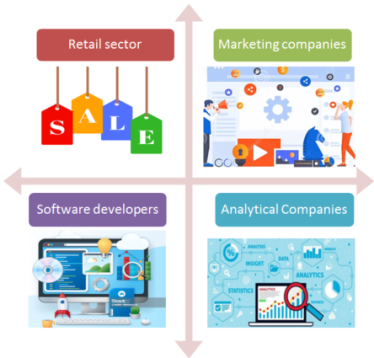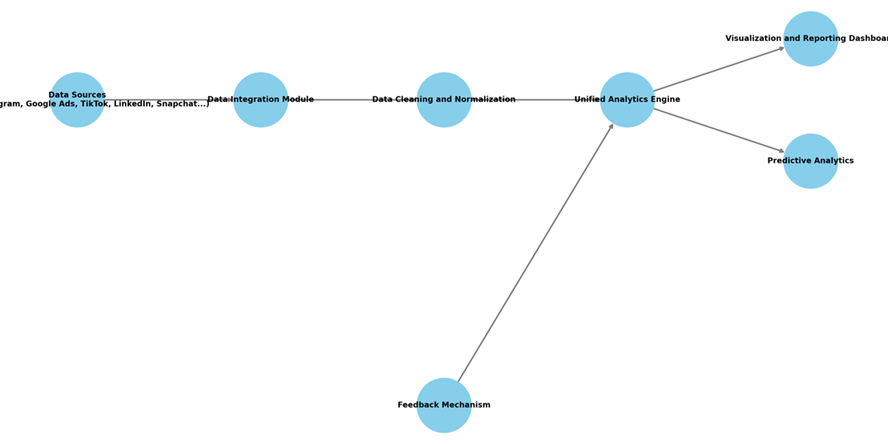NCC BULGARIA


The National Competence Centre of Bulgaria (NCC-Bulgaria) in the area of High-Performance Computing (HPC), High-Performance Data Analytics (HPDA) and Artificial Intelligence (AI) has the goal to enhance and develop the competences of the Bulgarian computational community, making full use of EuroHPC resources and the EuroCC partnership.
The NCC-Bulgaria is built by a consortium coordinated by the Institute of Information and Communication Technologies at the Bulgarian Academy of Sciences (IICT-BAS), and two members, Sofia University “St. Kliment Ohridski” (SU), and University of National and World Economy (UNWE). The three partners carry diverse technical and scientific background in the area of HPC and ICT in general, so as to ensure achievement of the project objectives and guarantee the overall success.
The partners collaborate with Sofia Tech Park, where the Discoverer EuroHPC supercomputer is operating.
Partners involved in the success story:
Companies in the retail sector, Marketing companies, Software developers, Analytical Companies

Technical/scientific Challenge:Integrated Analysis of Multi-Platform Marketing Data
In the evolving digital advertising landscape, brands and marketers invest across multiple platforms like Meta (formerly Facebook), Instagram, Google Ads, TikTok, LinkedIn, Snapchat, and more. Each of these platforms provides a plethora of data related to ad performance, audience engagement, and conversion metrics. However, integrating and comparing data from these disparate sources with their own specific APIs to derive a holistic view of advertising efficiency remains a significant challenge. Marketers need a comprehensive solution to assess and compare the ROI of each ad channel to optimize their marketing budget.
Another technical challenge is finding an appropriate attribution model. At the beginning it could be based on data from Google Analytics, but a more comprehensive approach is to create and tune own attribution model based on feedback from the system itself.
Solution: Multi-Platform Ad Analytics Dashboard
Data Integration Module: Develop a module that interfaces with the APIs of Meta, Instagram, Google Ads, TikTok, LinkedIn, Snapchat, etc., to fetch ad performance data. This module should handle varying data structures, frequency, and metrics specific to each platform.
Data Cleaning and Normalization: Given the diverse nature of metrics across platforms, a robust data cleaning process is crucial. Normalizing metrics like engagement, impressions, click-through rates, and conversions ensures comparability.
Unified Analytics Engine: Implement an analytics engine that processes the integrated data to derive insights on ad performance, audience behavior, and conversion metrics across platforms. Use statistical methods to compare and contrast the efficiency of each ad channel.
Visualization and Reporting Dashboard: Build an interactive dashboard that provides marketers with real-time insights into the performance of their ads across platforms. This dashboard should allow users to drill down into specifics, compare metrics side-by-side, and visualize ROI and other KPIs for each channel.
Predictive Analytics: Integrate machine learning models that predict the future performance of ads based on historical data. This can guide marketers in allocating budget to channels that are forecasted to perform best.
Feedback Mechanism: Incorporate a feedback loop where marketers can input results from offline conversion tracking or other external metrics to refine the analytics engine’s accuracy.
Scientific impact:
- Optimized Ad Spend: By understanding the ROI of each platform, marketers can allocate their budgets more efficiently, maximizing the return on their advertising spend.
- Informed Decision Making: A unified view of ad performance across platforms allows marketers to make data-driven decisions, be it for ad creative adjustments, targeting tweaks, or budget allocation.
- Reduced Data Silos: Centralizing the analytics process breaks down data silos, ensuring that insights derived are comprehensive and holistic.
- Future-Ready Marketing: Predictive analytics can guide marketers on future trends, preparing them to capitalize on upcoming opportunities.
Benefits:
- Unified View: A consolidated view of ad metrics from various platforms allows for easier comparison and analysis.
- Efficient Budget Allocation: Insights on ad performance across platforms help in optimizing ad spend, ensuring higher ROI.
- Data-Driven Decisions: The analytics dashboard aids in making informed decisions based on real-time data.
- Future-Proof Marketing: Predictive analytics provides foresight into potential future trends, enabling proactive marketing strategies.
- Time Savings: Automated data integration and visualization save significant time compared to manual data compilation and analysis.
- Enhanced Personalization: Understanding ad performance metrics across platforms can lead to better-targeted ads, enhancing user engagement.
Success story # Highlights:
- Keywords: IoT, Big Data, Traffic events, Traffic alerts, Analytics
- Industry sector: Retail, Services
- Technology: Various integrations, BigQuery, MySQL or alternative data storages
Data flow diagram:

This project has received funding from the European High-Performance Computing Joint Undertaking (JU) under grant agreement No 101101903. The JU receives support from the Digital Europe Programme and Germany, Bulgaria, Austria, Croatia, Cyprus, Czech Republic, Denmark, Estonia, Finland, Greece, Hungary, Ireland, Italy, Lithuania, Latvia, Poland, Portugal, Romania, Slovenia, Spain, Sweden, France, Netherlands, Belgium, Luxembourg, Slovakia, Norway, Türkiye, Republic of North Macedonia, Iceland, Montenegro, Serbia
Contact:
Prof. Kamelia Stefanova and Dimitar Gulev. University of National and World Economy